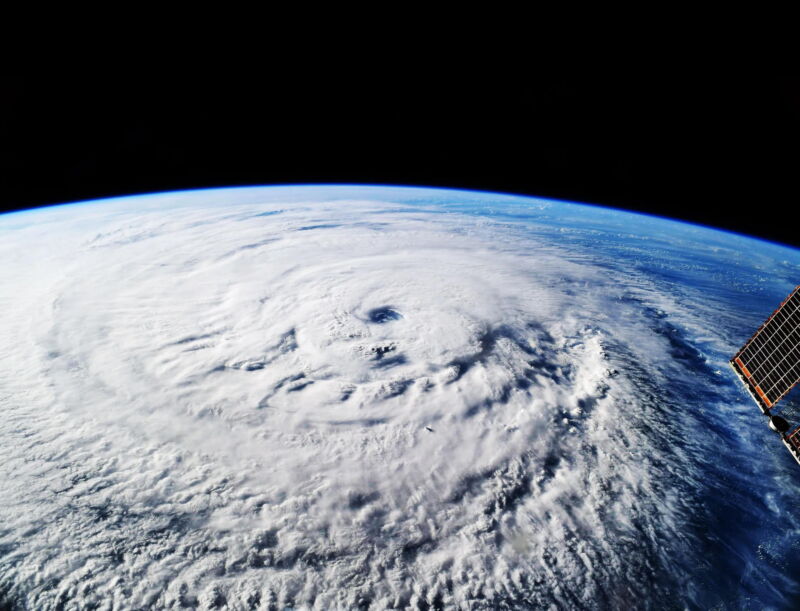Hurricane Larry dumped 100,000 microplastics per sq. meter on Newfoundland each day

Enlarge (credit: J Marshall/NASA/ESA/T. Pesquet/Alamy)
As Hurricane Larry curved north in the Atlantic in 2021, sparing the eastern seaboard of the United States, a special instrument was waiting for it on the coast of Newfoundland. Because hurricanes feed on warm ocean water, scientists wondered whether such a storm could pick up microplastics from the sea surface and deposit them when it made landfall. Larry was literally a perfect storm: Because it hadn't touched land before reaching the island, anything it dropped would have been scavenged from the water or air, as opposed to, say, a highly populated city, where you'd expect to find lots of microplastics.
As Larry passed over Newfoundland, the instrument gobbled up what fell from the sky. That included rain, of course, but also gobs of microplastics, defined as bits smaller than 5 millimeters, or about the width of a pencil eraser. At its peak, Larry was depositing over 100,000 microplastics per square meter of land per day, the researchers found in a recent paper published in the journal Communications Earth and Environment. Add hurricanes, then, to the growing list of ways that tiny plastic particles are not only infiltrating every corner of the environment, but readily moving between land, sea, and air.
As humanity churns out exponentially more plastic in general, so does the environment get contaminated with exponentially more microplastics. The predominant thinking used to be that microplastics would flush into the ocean and stay there: Washing synthetic clothing like polyester, for instance, releases millions of microfibers per load of laundry, which then flow out to sea in wastewater. But recent research has found that the seas are in fact burping the particles into the atmosphere to blow back onto land, both when waves break and when bubbles rise to the surface, flinging microplastics into sea breezes.